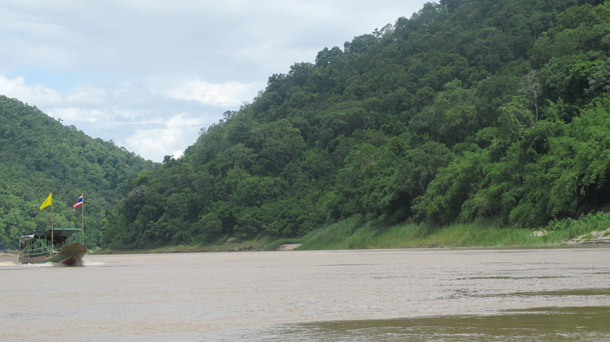CHIANG MAI, Thailand — Civil society organizations in Shan State have called for an immediate halt to a planned hydroelectric dam on the Salween River, accusing an Australian company of helping to push the project ahead without proper public consultation.
For the last three months, area villagers have held protests against community consultation meetings organized by Australia’s Snowy Mountains Engineering Corporation (SMEC), which has been tasked with assessing the potential environmental and social impact of the Mongton dam.
In a statement on Tuesday, a group of 16 Shan civil society organizations claimed that instead of providing a genuine forum to discuss the dam’s impact, the SMEC’s community consultations were being used to expedite the project.
“It is becoming apparent that SMEC’s (impact assessment) process is simply a sham, aimed to rubber-stamp the Mongton dam plans, rather than objectively assess the project’s actual impacts,” the statement read. “Despite promising to hold ‘comprehensive’ public consultations in impacted townships, SMEC has since last month canceled all public consultations at the township level, instead only holding closed-door meetings with government officials…This appears to be a deliberate strategy to avoid facing community protests against the dam.”
The largest of six hydroelectric dams proposed for Burma’s Salween River, the Mongton dam is a joint project between China’s Three Gorges Corporation, the Electricity Generating Authority of Thailand, and Burma’s Ministry of Electric Power. Another reported partner is the International Group of Entrepreneurs, a company run by the family of Union Solidarity and Development Party lawmaker Aung Thaung, who was added to the US Treasury’s sanctions list last year.
If completed, the 227-meter high dam would produce 6400 megawatts of electricity at peak output, 90 percent of which would be exported to China and Thailand.
There have been consistent local objections to the Mongton dam proposal since the project’s backers signed a memorandum of understanding in 2010. Environmentalists say the project’s reservoir would stretch across two-thirds of the length of Shan State and flood a substantial part of Kunhing Township.
The SMEC’s public consultations, beginning in March before moving to Mongton and Kunhing Townships the following months, were met with local protests, and a public meeting in Kunhing on Apr. 30 was canceled after news of a further protest became public.
Tuesday’s statement alleged that SMEC field surveyors had been forced to leave Mongton after angering locals “by only explaining the positive impacts of the dam, giving them ‘gifts’ which they saw as bribes, and persuading them to sign documents they didn’t understand.”
The civil society coalition has called for SMEC to end its impact assessment studies and investors to withdraw from the site, noting that over 60 Chinese engineers had been based at the site since earlier in the year to conduct hydrological and geological tests.
Sai Khur Hseng, a spokesman for the coalition, said that the project should be shelved until the conclusion of a nationwide peace settlement that devolved infrastructure and resource decisions to local communities.
“We should wait until there is a negotiated federal agreement under the peace process, which would give ethnic people decision-making power to protect their natural resources, including waterways, in their areas,” he told The Irrawaddy on Tuesday.
Nang Wah Nu, a Shan Nationalities Development Party lawmaker representing Kunhing Township in the state parliament, told The Irrawaddy on Monday that the government appeared determined to continue with the Salween hydropower projects despite public opposition
Last year, Nang Wah Nu used a parliamentary session to ask whether the projects would continue.
“I have not got the answer yet, but was told the answer would come after the impact assessment works are finished,” she said, adding that the public would appreciate the Shan State government taking a strong stand against the dams.
The Rangoon offices of SMEC could not be reached for comment on Tuesday despite numerous attempts by phone and email.

















